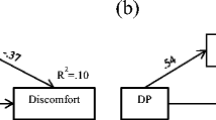Abstract
Graduate students in the sciences must develop practical skills geared toward scientific survival and success. This is particularly true now, given the paucity of research funds and jobs. Along with more elementary skills, research ethics should be an integral part of students’ scientific training. Survival skills include research skills, communication skills, general efficiency, and preparation for post-graduate work. Ethics training covers guidelines for use of animal and human subjects, data treatment, disclosure, credit issues, conflicts of interest, and response to misconduct. The objective of this paper is to describe, from a graduate student’s perspective, the need for survival and ethics training in graduate programs and to raise both faculty and student awareness of the possibilities for explicit instruction of these skills. Many survival skills and ethical practices will be learned without explicit direction and some are already part of standard training; but, this is not the case for all students or for all skills, so specific instruction is a necessity. Research faculty can use their own experience to help students to develop the proficiencies they will need to succeed.
Similar content being viewed by others
References
National Institutes of Health (1990) Reminder and update: requirement for programs on the responsible conduct of research in National Research Service Award institutional training programs,NIH Guide for Grants and Contracts 19: August 17:1.
National Institutes of Health (1990) Reminder and update: requirement for programs on the responsible conduct of research in National Research Service Award institutional training programs.NIH Guide for Grants and Contracts 21: November 27:2–3.
Recommended readings
The Belmont Report: Ethical Principles and Guidelines for the Protection of Human Subjects of Research. (1978). National Commission for the Protection of Human Subjects of Biomedical and Behavioral Research.
Beveridge, W. B. (1950)The Art of Scientific Investigation, Vintage Books, New York, USA.
Conduct in Science: A special news report. (1995)Science 268: 1679–1718.
Day, R. A. (1994)How to Write a Scientific Paper, 4th ed., Oryx Press, Phoenix, Az.
Federal Policy on the Protection of Human Subjects: Notices and Rules,Federal Register, Vol. 56. No. 117 (June 18, 1991), pp. 28002–28007.
Gopen, G. D. & Swan, J. A. (1990) The science of scientific writing,American Scientist 78: 550–558.
Hoke, F. (1995) Veteran whistleblowers advise other would-be ‘ethical resisters’ to carefully weigh personal consequences before taking action,The Scientist 9 (10): 1.
Medawar, P. B. (1979)Advice to a Young Scientist, Basic Books, New York, USA.
On Being a Scientist: Responsible Conduct in Research, National Academy of Sciences Publication (1995), Washington, D.C.: National Academy Press.
U.S. Public Health Service Policy on Humane Care and Use of Laboratory Animals (PHS Policy).
Author information
Authors and Affiliations
Rights and permissions
About this article
Cite this article
Rittenhouse, C.D. Survival skills and ethics training for graduate students: A graduate student perspective. Sci Eng Ethics 2, 367–380 (1996). https://doi.org/10.1007/BF02583923
Received:
Revised:
Accepted:
Issue Date:
DOI: https://doi.org/10.1007/BF02583923




